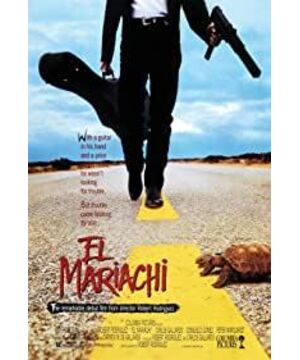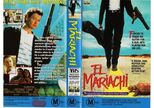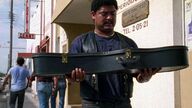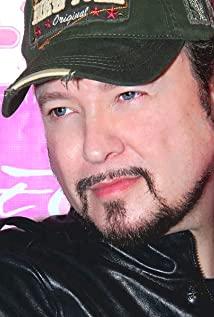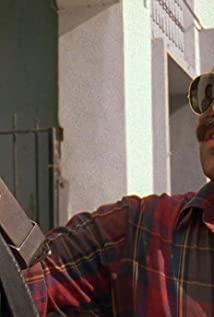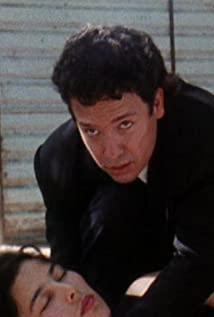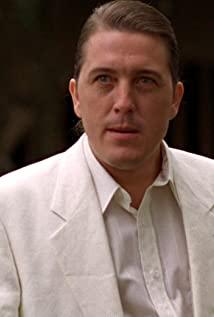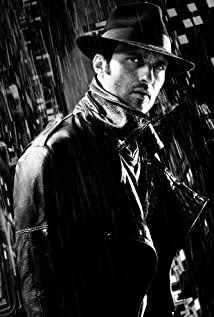• Robert Rodriguez film school ten minutes
Date: 2010-03-1 Source: Movie World Author:. R Rodriguez
in December 1991, a young man trying to sell his finest creations, not a script, not a student A study, but a well-made large-scale movie. The news spread in Hollywood. The film is called "Al Mariachi" and directed by Robert Rodriguez. Without the following details, there is nothing extraordinary about the film. The director is only 23 years old, costs 7,000 US dollars, and there is only one filming crew-Robert himself. A month later, three major Hollywood companies competed to hire him with high salaries and signed a contract with him. He eventually signed a contract with the Columbia company. Prior to this, the obscure young man began to be on an equal footing with the star figures in the same company. Rodriguez made his first film at the age of 8. This is an 8mm cartoon. At the age of 11, a real wealth appeared in the family: a Kwarzal-brand video camera that can be connected to the TV, which can shoot everything within a radius of 12 feet at will, or sound color images. But unable to edit the film, Rodriguez had to master the editing skills from the beginning of the filming. Later, my father bought a second video camera. Using these two cameras, the "Ross Huligangnos" company (Robert Rodriguez and his brothers and sisters acted as actors) began shooting amateur films and won many awards at short film festivals. With these films (his middle school grades are always poor), he entered the film department of the University of Texas in Austin. By the way, he didn't even graduate from middle school. After the success of "Al Mariachi", thousands of Hollywood film appointments have continued to flow, and it is meaningless to stay in school.
After finishing the script for his classmate and friend, he struggled to find a film producer to buy it. Rodriguez knew the reason for their failure: all scripts required tens of millions of investments, and their authors were unknown. An excellent idea flashed in his mind: why not write a low-investment script, make it as beautiful as possible, and then sell it to the Spanish film market-where there is a network of companies that shoot low-cost movies for the Latin American market. Then he began to fight alone.
To be honest, a movie that only cost 7,000 US dollars to produce sells for 20,000 yuan, and the income is not bad. If it succeeds, you can make persistent efforts to blackmail some filming funding from the publisher.
Rodriguez made detailed records from the shooting, editing and selling of "Al Mariachi", and based on this, he processed it into a best-selling book called "Rebels Without Film Crew". Although the content of the book hurt many film authorities-its main point is: "Don't stay in school and study, go out to make movies."-but it has become a must-read book in all American film schools.
The following excerpt is an abridged translation of a chapter. It's called -
Robert Rodriguez • ten-minute film school
film school classmates and friends:
You want to be a film director do? The first step to becoming a director is to stop saying that you want to be a director. It is true-you preach everywhere, you are the director, but there is no real action. You know, as soon as I close my eyes, I feel that I am shooting a movie. At this time, I have become a director, and everything else takes a back seat. So don't think about it, you will become a director. You are already directors. Go and print a business card for yourself. Now, let’s talk about some basic technical knowledge required for filming. Some well-known directors say that all professional knowledge can be mastered within a week. Too long. All of you can learn it in ten minutes.
Understand the following content, you can make your own magnificent film, no film crew, please believe, there is nothing more wonderful than entering the world of film art alone. This will scare many people. What's the matter? Let them frighten.
No, it's really wonderful-as work progresses, people are used to expecting each other, and now it's up to you to decide. People will realize that you don't need them, you have the ability to complete an excellent movie alone. You can make it as you want. This is the only reason why I want to teach you all the essentials of the system.
Before filming "Al Malichel," I almost knew nothing about it. I did make a lot of profit in making this film, and maybe you will get more harvest than me. Most of my knowledge is gained in the practice of filming. Now, I pass on this knowledge to you, free of charge.
The first lesson is: I want to say that movies depend on anything, but don’t depend on your money clips. No one told you this in school or in Hollywood. Think about it, any monkey will ruin himself when making a movie. The key is how to make yourself poor creatively.
What is a movie? This is a creative effort. The more creative ways you can solve the problem, the better the movie. Difficulties will continue to appear and have nothing to do with funds. Solving this type of problem does not require any creative effort, only money is rolling in like a tide.
When you run out of money, all you can count on is yourself and the ability to solve problems. The creative way is your basic weapon. This is the main difference between unconventional and mediocre rigidity. The most important and useful thing to be a director—"filming experience" is different from the usual "film experience". Film schools and Hollywood have turned them upside down, as if you really need "movie experience". It's simple to say: the director must understand how to engage in film production. He should gain this experience while working as an assistant and observing others shooting. Listen, this is the kind of experience we don't need! There is no need to know how other people make movies, especially Hollywood, since nine of their ten methods are useless. Don't learn this experience.
On the other hand, the "experience of shooting a movie" is that you pick up the rented video camera or other camera equipment, and then use editing to manipulate the already filmed images. It doesn't matter whether you use two cameras, or borrow computer editing, or rely on whatever you have at hand. Only one thing is important: you will gain experience in making your own images and stories. No matter how naive and immature the work is, it doesn't matter. Learn to use editing to master all this. Everyone has at least a dozen low-quality movies. The sooner you get rid of them, the better. Don't spend a lot of money on this. With a video camera, no matter how much you can shoot or how many pieces you can shoot, the TV recording equipment can meet your requirements. If you can complete the filming plan within a week, it is certainly better than spending money on expensive 16mm film. These practices will increase your experience and confidence, until you realize your dream and start making a real movie. If all of this is done independently by you, it means that you will never have to spend time looking for people who can help you.
In the limited school life, I have seen what students who do not have this kind of experience are doing. They put all the film knowledge they should have on their teachers-they were wrong. The purpose of entering the classroom is to master the technical points of film production, film screenwriting theory and editing technology. They don't know most of the points I said. Therefore, they spent $1,000 to make their first short film, but the results were mediocre. As soon as they learn all the knowledge, they immediately look forward to making good things. Many of them talked throughout the semester and wanted to be a director, but changed their minds when they hit a wall for the first time: "I never want to be a director anymore. This is obviously not my career. What I really want to do is become a film producer. "
Did you see it? This at least tells us where the producers generally come from.
I can't watch my first 15 or 20 TV films, but I learned a lot during the production. And continue to make. So to me, the process is more important than the result. This is of course more useful than working on film making in school. Those movies are too student-like. You may have heard this sentence: Everything can be re-examined and broken. In the final analysis, the only way: enough interest is your innovation.
The theory is: With amateur cameras, you can learn to operate the camera equipment, which makes the current directors restless. They will realize that any imaginative person can now make an excellent film, which will bring more competition to the already fierce market. It is true. They should be worried. They should be very scared.
Script
If learning to write the script, it is best to write your own thing, do not overwrite someone else's material. Don’t cooperate if you write alone. In this way you will learn a lot, and reward is experience. In general, this is also part of the movie. Cinematic art is generally considered to be collective creation, just as it presents itself. There is no rule that it must be collective. If you refuse to admit this conclusion and shoot one alone, you will gain experience and self-confidence, which is completely different from the feeling of collectively creating a movie. Your film road has just begun, and you don't need so many helpers. If the film is successful, it will prove that everyone has worked together. If the shooting is bad, a lot of people can be blamed, and you will get nothing.
If you still want to go to film school, just forget it. Take back the 20,000 yuan to be blackmailed by California or New York University and put it back in his pocket. Know where no one can teach you to shoot high-quality, low-cost short films. Instead, you will be taught to make high-cost movies. After that, you enter Hollywood, where you are led by someone else's plan.
But the biggest mistake is still-shooting low-cost movies with the set of things learned in school. If your filming costs are high, the crew is easy to control. If it is a low-cost play, they will become lifeless and you will be overwhelmed.
If you try to shoot in the style of Al Mariache, the funding problem will be wiped out. Because there is almost no expenditure in this film. There is no camera crew, no problems related to this. There is no need for complicated technology and lighting, because my work only needs a camera and few lighting equipment. But you don’t have to copy Al Mariachi completely, you can find your own way.
I have talked with many people, they shoot their own "no cost" movies, their original method is amazing. So, find your own method and use it well.
Become your own photographer
How to make a movie? What kind of equipment is necessary? I started by renting a 16mm camera. At that time, I knew nothing about the average price of the market. I need to spend a few minutes to understand all the problems. I recorded the sound of the machine at several companies that sell movie machinery before making a decision.
Okay, choose your equipment. It doesn't matter whether it is a 16 or 35mm camera, HI-8 or Super 8. What kind of machine you use determines what tasks you set for yourself. Bring what you can easily get. I have chatted with some fame and fortune-minded directors, and they spent a lot of paired time talking about what type of equipment this is, and what kind of equipment is most suitable for shooting under the conditions and so on. Enough, stop talking about the machine at hand, let's get started. Everything is still in place. Otherwise, you will never take the first step, the most important step.
I have a loyal partner of my own-a "Seconic" brand exposure meter, which I bought at a camera equipment store a few years ago, and it is still working well and has all the functions for film shooting. If you are shooting live, use ASA64 film, adjust the exposure meter to 64, aim at the face of the actor, and aim the small white circle at the camera. Press the middle button and you will see the numbers on the dial. Then adjust the numbers on the camera's objective lens. This is your aperture. What is the aperture is not important. For example, I have never thought about this problem. It is enough to do what the exposure meter tells you-it is your good friend. it is good! You have become your own photographers, congratulations. Then write "Photographer..." on the subtitles. That's what I did.
If your film is somewhat underexposed, don't worry. You will get a negative that is more black but more colorful in other colors. Nothing will be a problem.
For all indoor scenes, I only turn on the daily lighting, or fill up the light for the camera, or use high-sensitivity negatives, which will make the film clear and natural.
Pick up the camera and point it at the actor. No stand? good. If you make low-cost movies, nothing is worse than a good tripod. It can give you nothing. A first-class expensive tripod may bring amazing results. I'm not so sure, I have never had it. But a poor tripod will keep your camera motionless, and such a film must be lifeless. What is the answer? An unusable tripod. I had this one when I was shooting "Al Mariachi". The camera tripod is the most useless thing. Without a sense of flow, there is nothing. When I put the camera on it, it finally supported the camera. At the end of the filming, it was completely unusable. I use it to shoot close-ups in dialogue scenes. I kept the camera still while shooting all these scenes. When facing the pan and tilt/tilt lens, it is helpless. I use handheld photography, which has a documentary style and brings vitality to the film.
Therefore, the film should be dynamic. Dynamic-this is very advanced, it improves the quality of the film and makes the picture look more advanced. You may not believe that many people, including professional workers and audiences, told me that my film looks very advanced, just because my camera is constantly moving. Well, you watch the actors from the camera, the tripod will never be your shackles anymore. Your starting point is very good, and you all want to take good shots, because...what have you seen? You are listeners. Become an audience and forget that you are a photographer. Do you still think this pitch/tilt shot is good, if you are sitting in a movie theater and watching this scene. Move the camera and take a look, what will happen to all the scenes from a different viewpoint. Try to shoot your actors from the bottom up, give a close-up, fill this funny face with the picture, to cover up your lack of photography space. It's far better to watch funny people than to watch boring scenery.
Now, it looks good, but not quite good enough. Another point of view. Treat every shot like this. Ask yourself questions and find the best way.
Before shooting, try to show the whole movie in your imagination. Draw the scene, imagine, use a long shot to represent the scene, or edit it as a montage? Now, quickly draw up a director's book. You don’t need to be too diligent, just follow your instincts. Know that in low-cost movies, all you have is your own intuition. Learn to believe it. Read the table you wrote. While reading, imagine how the shots will be shown in sequence, and treat it as a finished film. There is nothing wrong with it, right? Think again. What you imagine now will become a real picture in your film. In this way, it is best to record everything that has not been written. Now, with your director's desk at hand, you should figure out every shot and outline it. When all this is done, your working day is over, congratulations.
By the way, if you feel that I oversimplified the basic aspects of film production, then I would be wrong. I just think that when your career is just starting, there is no need to stick to these trivial details. I will only talk about the essential points of each step for you. If you all do it, you can think of more important things: emotion, character and story. No one will be surprised at the unparalleled maturity and clarity of your film. They will only notice: fascinating stories, interesting characters. When everything is over, this becomes meaningful, and other minor details can be eliminated.
No matter what you want to do in the future, you should have a comprehensive understanding of all aspects of film production. Only after trying all the work, can you clearly know what you are suitable for. In this way, when shooting a film, you can easily understand the problems of photographers, sound engineers, etc.
I used to make a film with a camera crew. We exchange ideas once a day, which is unheard of. We shoot 13 hours a day, 78 shots. Without this camera crew, if I just sit on the director's stool and gesticulate: "Move, move!" There would be no such gain, and I might be sent far away. Therefore, I picked up the camera and worked on my own, trying to do everything well and in place. My group saw it and started to join in. If I asked them to leave, they would call me a lunatic and then go away. In this way, we were able to complete all the work quickly, without complaints or fainting. The actors were very satisfied, so they kept performing. Repeated rehearsal for 5 shots twice, and no one was depressed. On the contrary, every time we shoot, everyone's morale is high, energetic, and they improvise very well. If the shooting time is prolonged, they will no longer have the above passion and all morale will be wiped out.
Why it's always like this: You went to the cinema, and what you saw in the movie was long and boring, like pieces of dry bread that were hard to swallow. So all the passion is gone before the camera is turned on. The slow process of work means that you not only squeeze the passion of the actors, but also make the whole movie listless. A movie usually lasts an hour and a half. Why did it take three months to shoot the 9-minute scene in the film? The faster your work progresses, the lower the production cost of your film.
The atmosphere of the shooting location is conducive to the creation. Not to mention the dynamics, this is something huge, bloated, and procrastinating Hollywood will never get, no matter how much it costs.
Therefore, don't think that only the Hollywood model is the only way to make a movie. They are spending money and doing things slowly, so that you will have one time inadvertently, screaming and sleeping on the shooting site, and forget to call "start shooting".
Clips
books and film schools to introduce you to some of the best clips overhead expensive method. They usually say this, picking up the finished 16mm film, editing a working sample, then watching a sample, editing a double film from this sample, and then organizing a movie observation for the dealer, making another change, and finally editing An official copy is issued and distributed to every film festival. This is not bad, but there must be a prerequisite-you are millionaires.
For other people, that is, people who are not so wealthy, a much wiser and more economical approach can also achieve the same effect. The working sample of "Al Mariachi" should have cost me at least 20,000 yuan. It should have been like this: I showed the film to the film distributor, and they bought it. In order to get the film on the market, they had to pay for the 35mm format and stereo effects. The question is here, since you can let them watch ordinary videotapes, why make your own videos so expensive? Let them spend money, this is their job. It is best for you to invest in new production methods and think about the old methods.
Some acquaintances told me that using film editing (not video material) can closely link the director and the film. If you like it, just do it, take a film of film home, and think about it all night. This will help you connect. If the time has come for you to officially start working, use video editing and computers. In my opinion, film editing is the slowest and most ridiculous method for beginners. This will take a lot of time. Video clips that are not worth mentioning dry up faster, while movies look more "smooth". You know, when you start editing your own films, that is, the day you will live and breathe with your films for a long time, you don't have to spend time thinking about ways. The film editing process will be unbearably long. Waiting and time consuming will hinder creation. For me, this is always the case. Video editing is more suitable for expressing what you think. Therefore, it can work so fast that it can keep up with your thinking speed.
I did not consider recording work. I shoot my film like a silent film, and at the same time record the sound with an ordinary tape recorder, and then manually synthesize the sound and image. No one in the school will teach you this little trick, on the contrary, they teach some correct, that is, expensive methods. But remember the most important point: there is not only one solution to a problem at any time. Go find, go show.
After filming "Al Mariache", I heard people talk about a film crew, and they never dared to use the "Nacora" tape recorder. So they filmed some silent images and recorded the sound on the HI-8. First-class thought. There is digital sound on HI-8. Later, some people recorded the sound on the computer hard disk, and then used ordinary computer programs to edit digitally. Choose a way of your own.
In this way, why does film production cost a lot of money? One of the reasons is that they took too long. When sitting in a theater watching a movie, I am often confused, why do most of the movies have a production time limit of more than 14 days?
How to learn to shoot a movie quickly? Rehearse until you understand what you have gained, and then shoot again. Then forget about it and go further. You remember that a movie is made up of multiple parts, so you spend time on the minutiae and over and over copying. You are throwing money at will. Try to achieve the desired effect in the first two copies, and later, with the help of editing to achieve this effect. If you take everything into consideration and plan well, these will become indispensable when editing. Say it again-follow your instincts. The most exciting thing is that you shoot yourself. This is a feeling of looking at the past. Every time you take a good shot, you have something for yourself. By looking at the actors through the objective lens, you can know exactly how this scene will look on the screen. The feeling of working with surveillance screens and other equipment is unprecedented for you.
It's over. The teaching ends here. Leave your seats and go to make a movie. I believe you, Hollywood has already sung carols for you. How many creative people try to get in there and get everything organized, but in vain, they have a low estimate of themselves. I know this very well, because that's how I thought about it for a long time. Then get started and let me know when the work is finished. You make movies and I will bring you popcorn. Goodbye, I wish all the best.
View more about El Mariachi reviews


